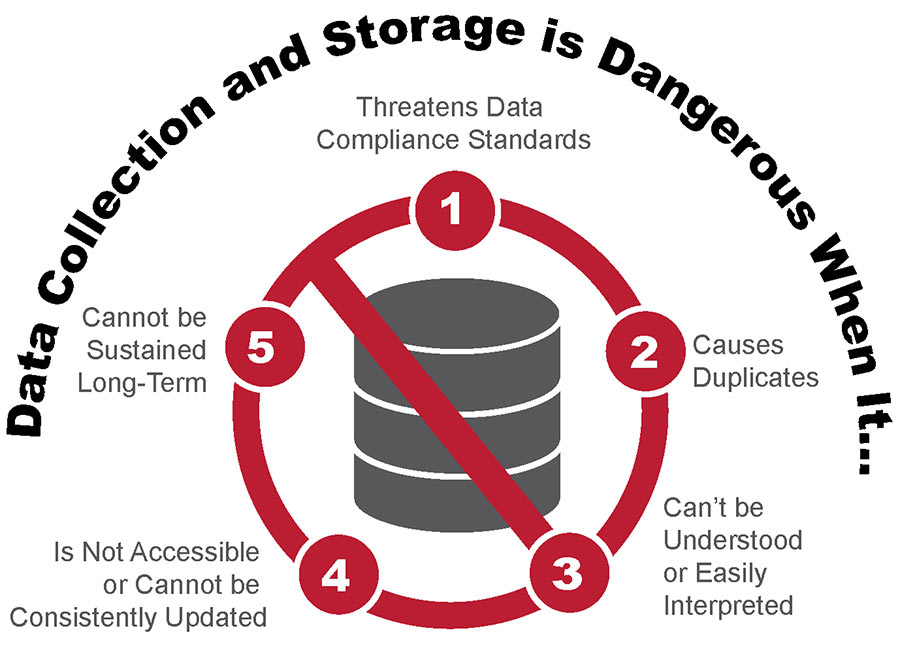Storing large quantities of data is no longer a technological challenge. With the widespread adoption of fundraising analytics and the next generation of scoring systems on the horizon, the impulse is for organizations to store everything. Despite the proliferation of new sources of data, the most pressing question most organizations face is how to best use their fundraising CRM system to raise the most money. After all, who knows which piece of data your next model will determine is useful? So shouldn’t we save everything? Given the inclination to store as much data as possible, it’s sometimes more helpful to ask the question, “What data should I *not* store?” Fortunately, there are best practices for data storage and collection that can help us determine information that is not helpful.
Five Instances When Data Collection and Storage Might be Dangerous

1. When storing the data threatens data compliance standards.
Among the most critical compliance standards for fundraising organizations are Payment Card Industry (PCI) security standards. Violating these standards could jeopardize an organization’s ability to process donor donations, so these standards should be taken seriously. PCI standards dictate that information such as credit card numbers, authentication data, or PIN numbers should not be stored on the premises. For organizations involved in healthcare fundraising, The Health Insurance Portability and Accountability Act (HIPAA) impacts how patient data can be accessed, used, and stored. Organizations violating HIPAA regulations face financial penalties.
2. When the data causes duplicates.
Uploading or integrating data from external systems or vendors can often create duplicate records. This can be especially true for e-communication or mobile donation platforms where it is sometimes not possible to gather demographic information on individuals. Without a strong data management plan, loading this type of data can lead to duplicate records.
3. When the data cannot be understood or easily interpreted.
Storing cryptic or inaccessible data can lead to numerous problems. The inclination may be to stockpile data until it may become useful. However, ambiguous data risks being misinterpreted or misappropriated if its purposes are not clear. Cryptic data, such as log files, can take up large amounts of space with little long-term value. Good planning and documentation are critical for data storage.
4. When the data cannot be consistently updated.
Fundraising databases attempt to build a holistic portrait of an organization’s relationship (or potential relationship) with individuals. CRM databases morph over time as users add, change, and append data that inform these relationships. Data that either fails to link back to individuals or cannot be refreshed does little to add value to the organization.
5. When the data cannot be sustained long-term.
Do you really want to create a field in the database for that piece of information? Sometimes, just because we can, doesn’t mean we should. If a field is created in the CRM, someone should monitor and update that field. It is better to have a few fields that are updated consistently and accurately, rather than a lot of fields that are out-of-date or improperly used.




